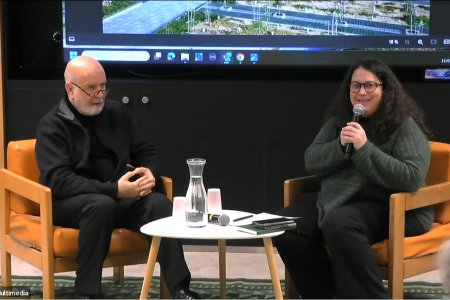 Conference
Conference
01/11/2024 - 07:30 PM 09:30 PM
Rachid Koraïchi
José Pablo Baraybar
Filippo Furri
Silvia Di Meo
On Thursday 11 January 2024 at 6.30pm, the CRASH team welcomed artist Rachid Koraïchi, forensic anthropologist Jose-Pablo Baraybar and anthropologists Filippo Furri and Silvia Di Meo for a round table discussion on missing and dead migrants and their identification.
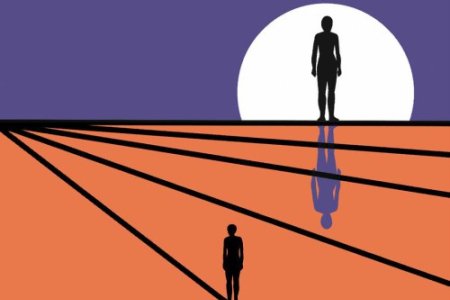 Video
Video
11/23/2023
On September 14th, 2023, the Journal of Humanitarian Affairs, the academic journal in open access, hosted jointly by the Crash, The Humanitarian Affairs Team at Save the Children UK (HAT) and the Humanitarian and Conflict Response Institute at the University of Manchester (HCRI), has published a new issue entitled “Humanitarian numbers”. The latter focuses on the technical aspect of numbers, dealing with two main questions: What datafication means? How well does the quantitative represent reality?
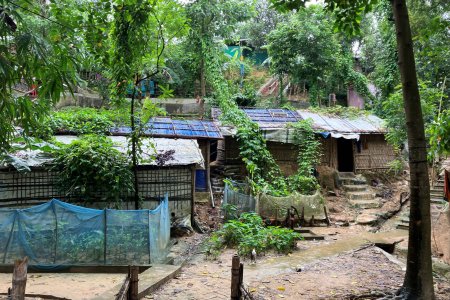 Michaël Neuman
Opinion
Michaël Neuman
Opinion
10/31/2023
Michaël Neuman
This article was published in the London Review of books website on September 8, 2023. The former evokes the dire conditions in which roughly 1 000 000 Rohingyas live in Cox’s Bazar, the largest refugee camp in the world. In this coastal district in south-east Bangladesh, the humanitarian deployment is impressive, but commitment by donors is waning. Between March and June, monthly food allocations fell from $12 to $8 per person. The difficulties of accessing care, the social control to which they are subjected and the lack of prospects are many reasons explaining the perils faced by the Rohingya population.
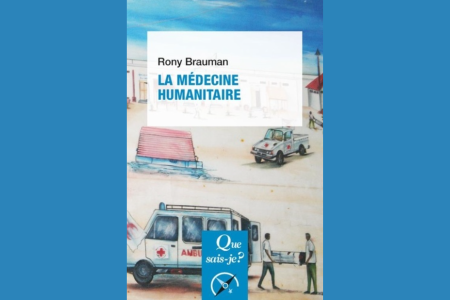 Frederic Noy
Book
Frederic Noy
Book
02/01/2009
Rony Brauman
Humanitarian medicine is intented for marginalized people, hit by a crisis or deprived of access to medical care. This book helps us understand how the specificity of humanitarian medicine stems from real-life situations, more than from the medical act in itself.
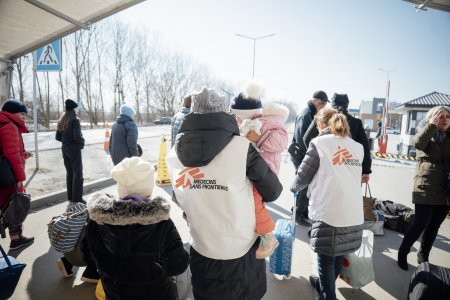 Peter Bräunig/MSF
Opinion
Peter Bräunig/MSF
Opinion
04/08/2022
Michaël Neuman
Thierry Allafort-Duverger
In a country with a solid medical infrastructure and faced with a large-scale international mobilisation, what is the place of MSF in Ukraine and beyond? "We are not currently in the front line of emergency care provision," write Thierry Allafort Duverger and Michael Neuman, who see our work in limited areas, particularly with those "left behind," and in the longer term.
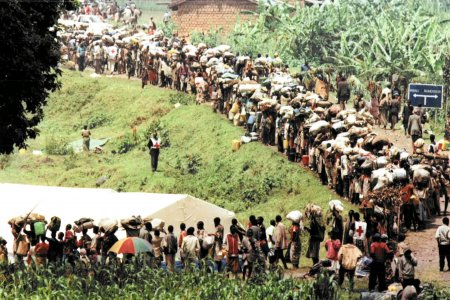 John Parkin
Interview
John Parkin
Interview
01/10/2018
Marc Le Pape
Jean-Hervé Bradol
How much is known about the daily experiences of humanitarian workers in extreme situations such as major conflict or disaster? In their new book, “Humanitarian Aid, Genocide and Mass Killings: Médecins sans frontières, the Rwandan experience, 1982-97”, Marc Le Pape and Jean-Hervé Bradol set out to answer some of these questions. The book is also informed by Bradol’s experience of working for Médecins Sans Frontières in Rwanda during the genocide.
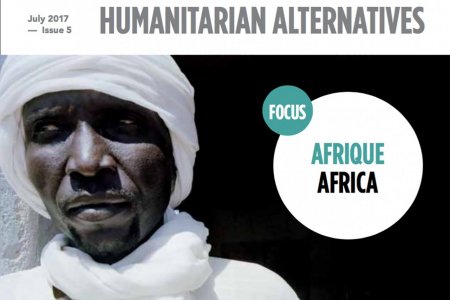 Alternatives Humanitaires
Interview
Alternatives Humanitaires
Interview
07/05/2017
Marc Le Pape
Marc Le Pape, sociologist and member of MSF-Crash Scientific Committee, is interviewed by Boris Martin, Editor-in-chief of Alternatives Humanitaires, about his and Jean-Hervé Bradol's latest book "Humanitarian aid, genocide and mass killings: MSF, the Rwandan experience (1982-1977)".
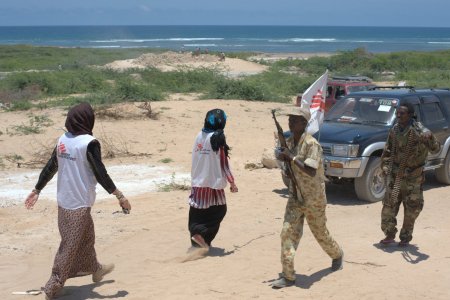 Yann Libessart
Analysis
Yann Libessart
Analysis
09/01/1993
Rony Brauman
In 1993, Médecins Sans Frontières left Somalia and denounced the methods of UN troops who were violating the very humanitarian principles in whose name they intervened.
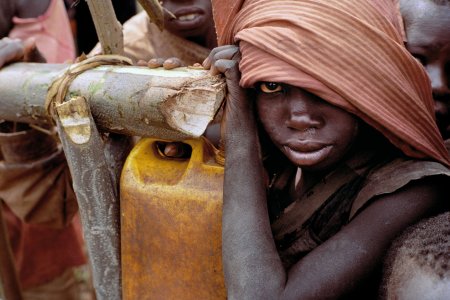 Ian Berry
Analysis
Ian Berry
Analysis
08/01/2000
Rony Brauman
Stephen Smith
Not having seen the genocidal drift of Hutu Power in 1994 coming, the international community grants Paul Kagame's RPF the impunity of victims. Yet such power also lends itself to criminal acts. The authors express their indignance that NGOs and international organisations - invoking the duty of remembrance - join in the endless evocation of the past that masks the political phenomena at the root of the current violence.
 Analysis
Analysis
02/22/2007
Fabrice Weissman
Fabrice Weissman looks at the major stages of the Darfur conflict since 2003 from the perspective of a humanitarian medical organisation. He questions the predominant reading of this crisis, and cautions against the illusions of international armed intervention in the region.
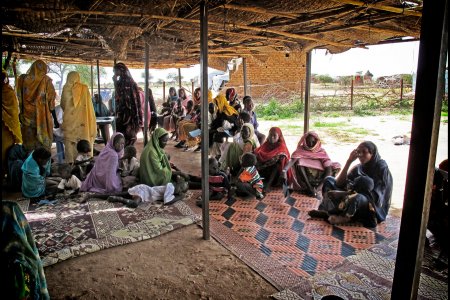 Inconnu
Analysis
Inconnu
Analysis
07/01/2008
Fabrice Weissman
With 13,000 humanitarian workers and a hundred relief agencies, Darfur hosts the largest humanitarian operation in the world. The aid apparatus started its full deployment in mid-2004 in a context of acutely high mortality among internally displaced persons (IDPs) gathered in camps and civilians remaining in rural areas.
 Xavier Lassalle
Interview
Xavier Lassalle
Interview
11/28/2016
Jean-Hervé Bradol
Marc Le Pape
Interview with Jean-Hervé Bradol and Marc Le Pape. The book is published by Manchester University Press and will be out in January 2017.
 Conference
Conference











